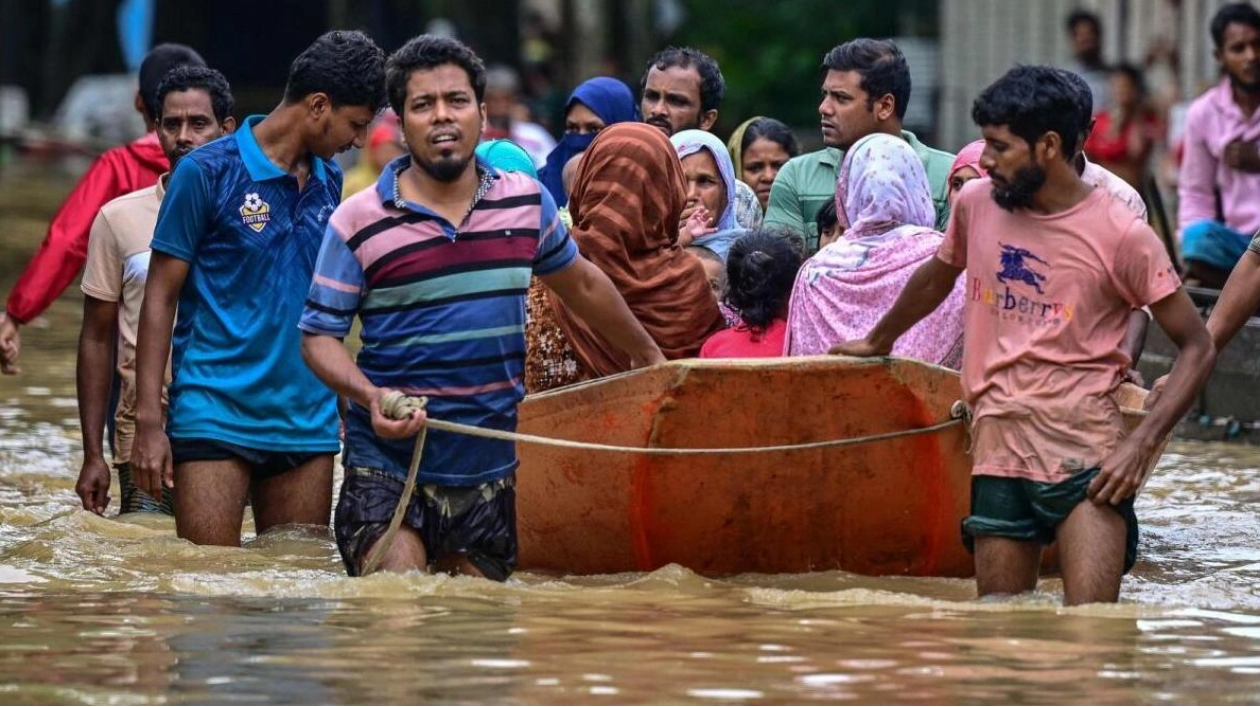Flash floods have caused significant damage in Bangladesh as the nation grapples with the aftermath of prolonged political turmoil, with the death toll reaching 13 and millions affected by the flooding. This South Asian country, home to 170 million people and intersected by numerous rivers, has experienced frequent flooding in recent years. Monsoon rains annually lead to widespread devastation, but climate change is altering weather patterns and intensifying extreme weather events.
"It's a catastrophic situation here," said 35-year-old rescue volunteer Zahed Hossain Bhuiya, speaking to AFP from the severely affected city of Feni. "We are doing our best to rescue as many people as possible." Nur Islam, a shopkeeper in Feni, reported that his home was entirely underwater. "Everything is submerged," the 60-year-old stated.
Much of Bangladesh consists of delta regions where rivers like the Ganges and the Brahmaputra, originating from the Himalayas, flow towards the sea after passing through India. Local media reports indicate that all major tributaries of these two transboundary rivers are overflowing. In India's Tripura state, which has also been hard-hit, more than 23 people have died since Monday.
Bangladesh's disaster management ministry reported that the 13 deaths include those in cities along the southeastern coast, such as Chittagong and Cox's Bazar, which hosts around a million Rohingya refugees from Myanmar. Areas east of the capital, Dhaka, including the city of Comilla near the border with Tripura, were also severely affected. According to the ministry's bulletin, nearly 190,000 people were moved to emergency shelters, and a total of 4.5 million people were impacted.
These floods occurred less than three weeks after the removal of former Prime Minister Sheikh Hasina, who had to be evacuated by helicopter during a student-led uprising. Hasina's 15-year tenure was marked by widespread human rights violations, including the detention and extrajudicial killings of political opponents. She was succeeded by Nobel laureate Muhammad Yunus, who leads an interim government tasked with implementing democratic reforms ahead of anticipated new elections.
In India, the heavy rains have not subsided, with Bagafa village recording 494 millimeters of rain in the 24 hours leading up to Thursday. State disaster agency official Sarat Kumad Das noted that most of the 23 deaths in Tripura were due to landslides, with a few drowning in floodwaters. Tripura's chief minister, Manik Saha, described the situation as "still concerning," with ongoing relief efforts in the most affected areas.






